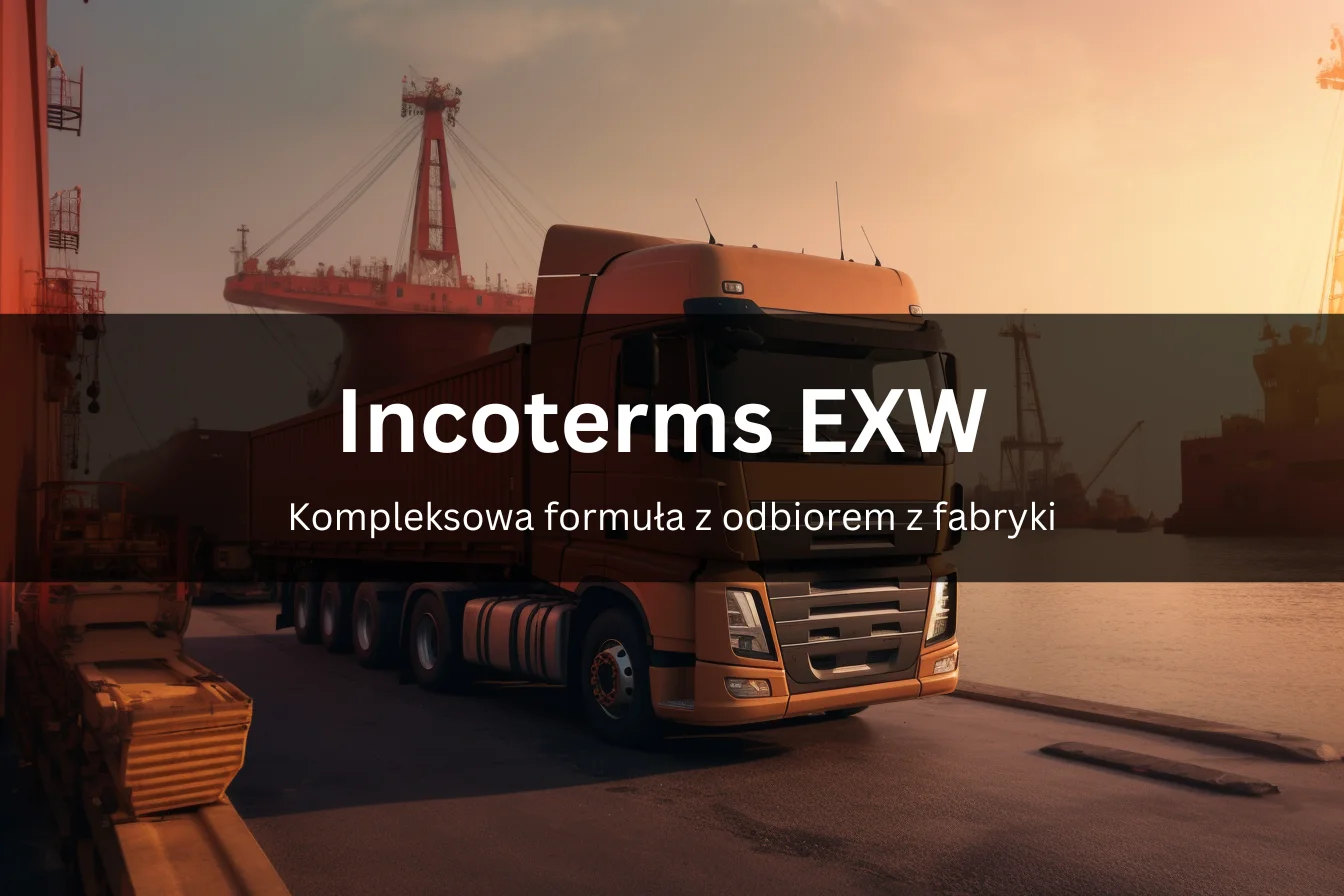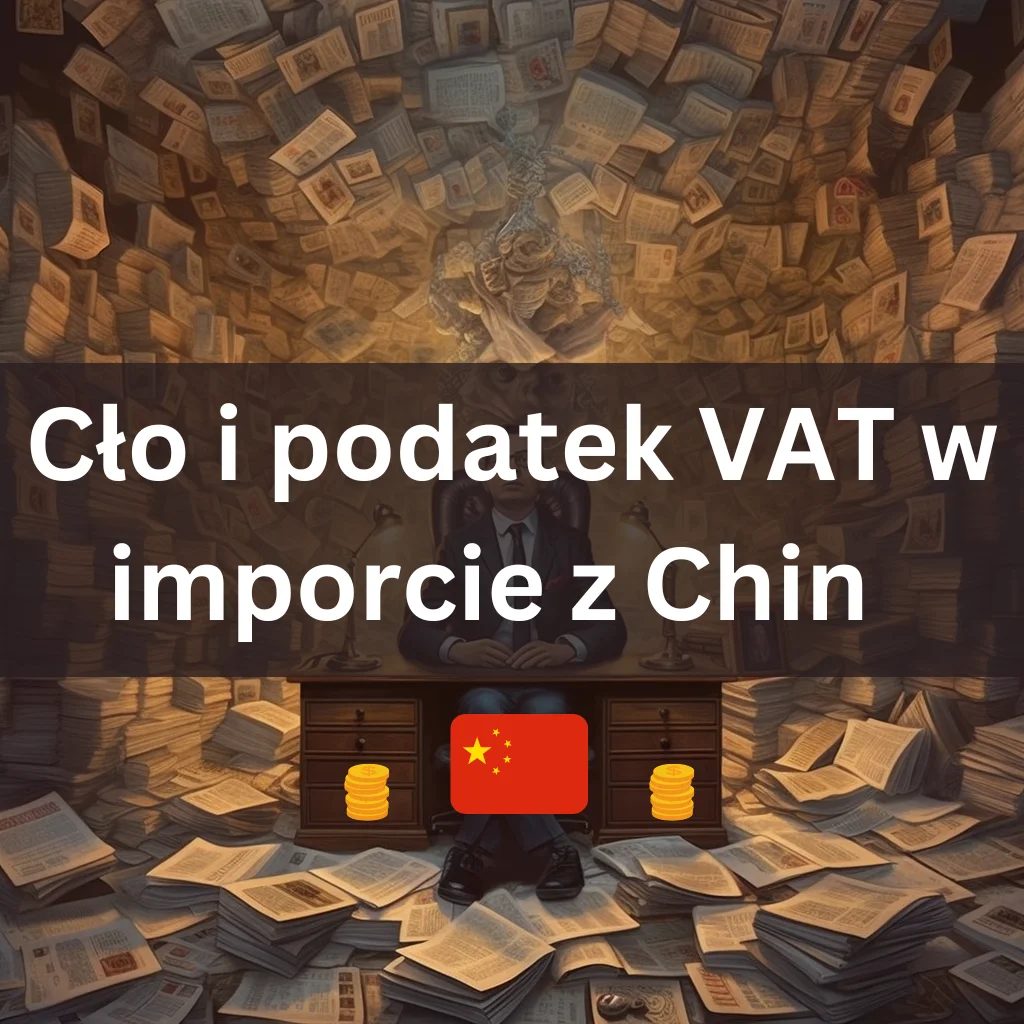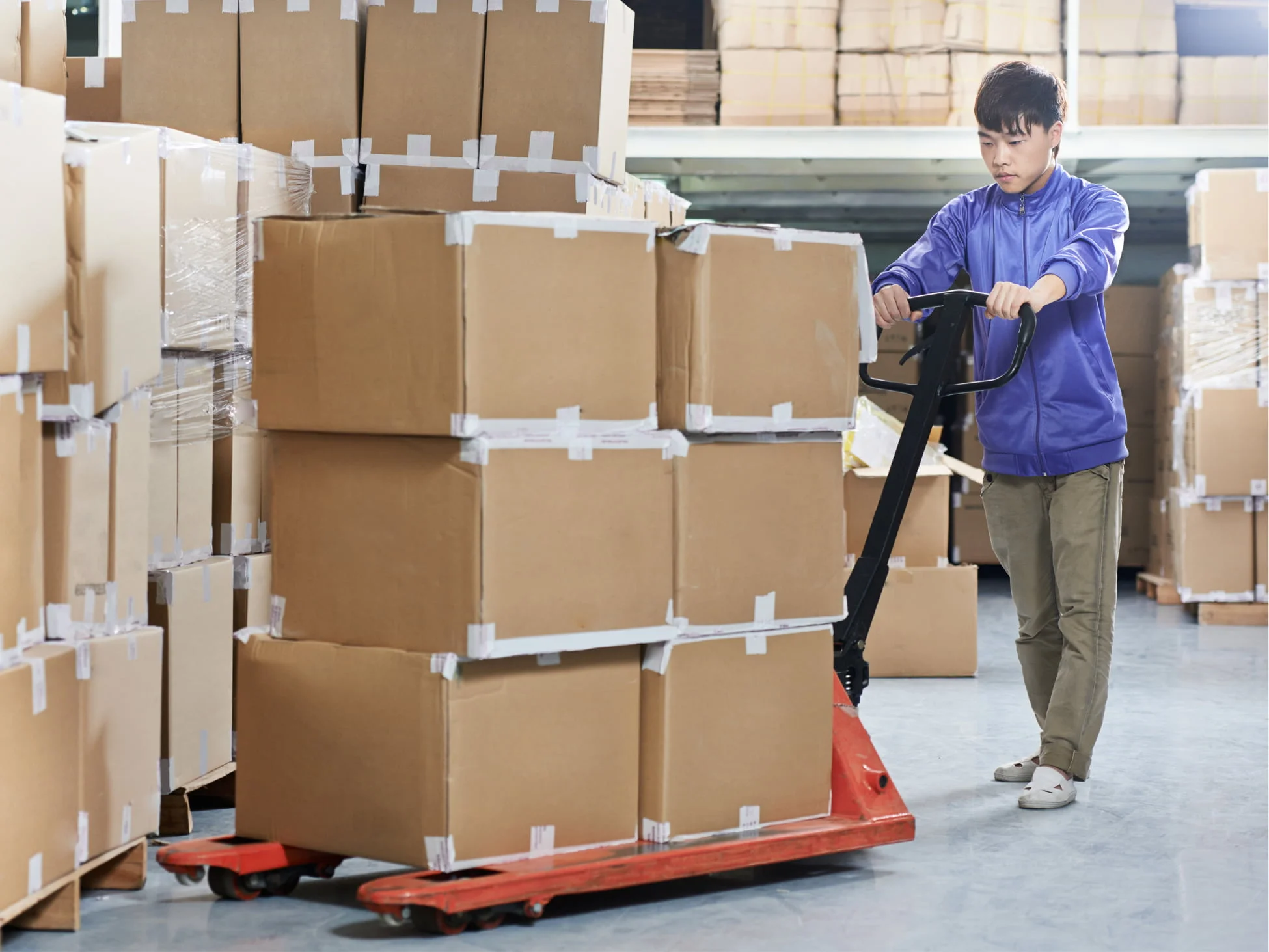What are INCOTERMS 2020 ?
INCOTERMS are international trade rules that apply worldwide. They are used in international transactions to define responsibilities, costs and risks between buyer and seller. The author of Incoterms is the International Chamber of Commerce (ICC), which created the rules to facilitate smooth and efficient international trade.
What is EXW Incoterms?
In practice, the EXW or Ex works formula means that the seller places the load in front of the warehouse or at another designated location. The rest of the transport is up to you, i.e. to collect the goods from the shipper's warehouse and transport them to their final destination. In this case, it is necessary to use a logistics company that will carry out such transport for us under EXW conditions. The buyer will be responsible for loading the goods, often the seller has the necessary equipment for loading, but if something goes wrong through his fault, the responsibility still lies with the buyer.
Vendor responsibilities:
- The seller is obliged to deliver the goods as well as the commercial invoice and other necessary documents.
- The seller is obliged to display the cargo at an agreed point, preferably at a place on the company's premises where it can be easily collected and left at the buyer's disposal.
- The seller bears the risk of loss or damage until the goods have been displayed at the designated place, the responsibility for loading the goods onto the means of transport already upon receipt already lies with the buyer.
- The seller is not obliged to take out cargo insurance, but when the buyer wishes to do so on his own he must make all the information available to him.
- The seller is responsible for providing the buyer with all the necessary information for import clearance in the country of destination.
- The seller is not obliged to conclude a contract of carriage for freight, his obligations are very limited
- The costs of quality control, measurements, weighing counting are also the responsibility of the seller,
- The seller must pay all costs of packaging the goods for dispatch.
- The seller is not obliged to take out insurance on the cargo
Responsibilities of the buyer:
- The buyer is obliged to pay the costs included in the sales contract
- The buyer is obliged to take over the goods once they have been placed at the agreed place.
- The buyer shall bear the risk of damage or loss of the goods from the time of delivery to the place indicated by the seller.
- The buyer arranges the contract of carriage from the point at which the seller has substituted the goods, i.e. from the moment that the goods have been collected from the seller's warehouse.
- In the EXW Incoterms condition for making a customs clearance import and export is the responsibility of the buyer.
- The buyer is responsible for the costs related to all charges such as taxes, customs, licence costs, etc.
The EXW formula is secure in terms of controlling the entire delivery process. When we choose a logistics company to help us with the transport, we have control at every stage of the transport. As a result, we outsource the entire transport process to one company, which increases the safety of the entire transport. Of course, this is also the case if we have a proven company to carry out such transports. Then we can also count on insurance from the Polish insurance company so that in the event of any damage to the goods it will be much easier to obtain compensation.
Summary:
In short, it is the seller's responsibility to deliver the goods, usually by placing them in front of his warehouse, while we, as the importer, must take care of the rest of the process by using an external company to do this for us. These companies provide comprehensive services and will be able to carry out all activities from the collection of goods from the warehouse to customs clearance and final delivery to the final destination such as our warehouse in Poland.
When working with a new shipper and not knowing the reliability of their operations, carrying out an EXW shipment may be the best solution. We will then avoid the risks associated with oversights that the shipper may make.
If you would like to learn more about the Incoterms 2020 rules, please see our other articles:






